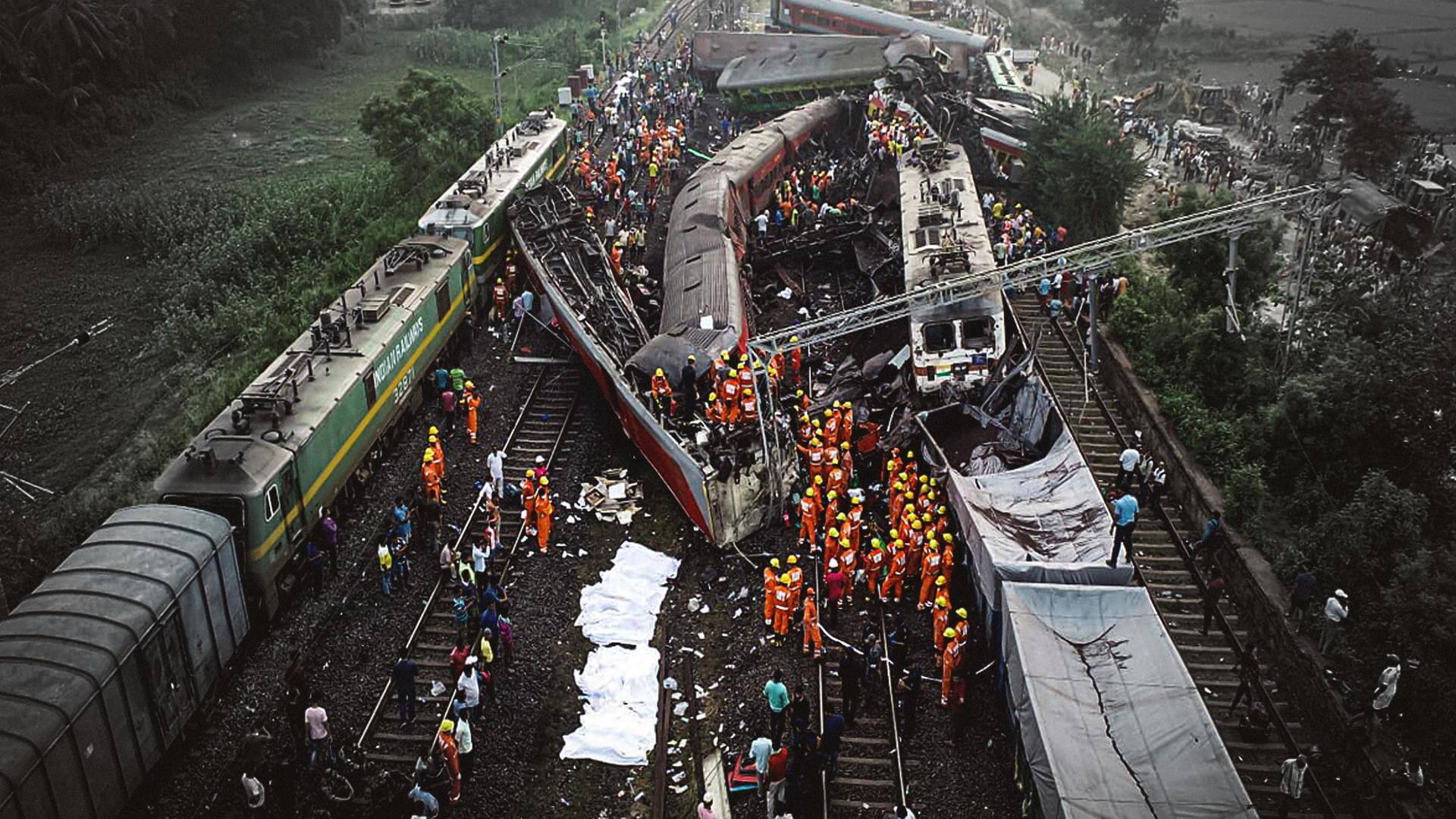
#NewsBytesExplainer: Why CBI is probing Odisha train tragedy
What's the story
The Central Bureau of Investigation (CBI) will likely take over the investigation of the Odisha train tragedy soon following the request of Union Railway Minister Ashwini Vaishnaw. The preliminary investigation, according to Vaishnaw, identified the "root cause of the accident," but it left certain questions and concerns unanswered, like "criminal conspiracy" or "tampering," which the investigation by the CBI will try to determine.
Details
Railway Minister Ashwini Vaishnaw recommended CBI probe
Speaking to PTI on Sunday, Vaishaw said, "We've recommended a CBI probe into the triple train accident that claimed 275 lives and left over 1,000 injured." The minister further stated that the Centre, along with the state government, is providing all possible assistance to the injured people. Earlier, Vaishnaw claimed that the accident happened due to changes in the electronic interlocking and point machine.
PM Modi
PM Modi warned of 'strict action' against those found 'guilty'
On Saturday, PM Narendra Modi also vowed strictest action against those found guilty. The next day, Vaishnaw said that a change in the track's configuration may have caused the accident and assured that "whoever has done this will not be spared." The statements pointed toward some negligence or interference in the "electric point" machine, which is the most important device for railway signaling.
Experts
Railway experts raised concerns regarding signaling system
Railway experts have also raised some concerns regarding the signaling system. SK Sinha, an Indian Institute of Science (IISc) Bengaluru alumni, told NDTV that the electronic interlocking systems used in Indian Railways to set up routes for trains are quite robust and conform to the highest level of safety standards. "It is unlikely that it would have failed on its own," he said.
Statement
What went wrong with electronic interlocking
Sinha added that the locked route cannot be changed until the train completes its movement. He said signals are green on the routes set and locked to let the drivers know it's reserved for him. "All events are recorded and available for post-event analysis, and I am sure officials would be studying the data logs," said Sinha, the founder of startup L2M Rail.
Indications
Is system failure or lack of synchronization possible cause?
Another expert, Nalinaksh S Vyas, Professor of Mechanical Engineering at IIT- Kanpur, who also headed the Technology Mission for Indian Railways (TMIR), suspects the accident was caused by systems failure. Vyas also suggested that it may have been caused by a lack of synchronization between the electronic and mechanical systems. "The Railways minister is right in identifying this issue...and getting this probed," he said.
Foul play
Railways Board member suspects foul play
On Sunday, Railway Board Member (Operations and Business Development) Jaya Verma Sinha said the "Track Management System" was supposed "to be tamper-proof and error-proof because even if it fails, the train would be stopped." She claimed that there seemed to be some kind of "interference" with the signaling system. Sinha also didn't rule out suspected "foul play" as a possible cause of the accident.
Kavach
Odisha's Balasore tracks lacked safety system 'Kavach'
Reportedly, the Kavach safety system to prevent train accidents was reportedly unavailable on the tracks in Odisha's Balasore. Kavach, an automatic train protection (ATP) system, is designed to alert the train driver, control the train's brakes, and bring it to an automatic halt in case of unusual scenarios.
CAG report
CAG report highlighted rail safety flaws
Notably, the CBI probe will assume additional significance in light of a 2022 audit report of the Indian Railways of the Comptroller and Auditor General of India (CAG), which flagged several serious rail safety lapses. It also highlighted severe shortfalls in inspections, failure to submit or accept inquiry reports, and non-utilization of funds on priority tasks, among others.
Report
Audit questioned Railways Ministry over preventing derailments
The CAG report questioned the lack of measures by the Railway Ministry to prevent derailments and collisions. It also reportedly flagged severe flaws in inspections, probes, utilization of funds, track renewal, and staffing of safety operations. "There were shortfalls ranging from 30-100% in inspections by Track Recording Cars required to assess geometrical and structural conditions of railway tracks," it said.